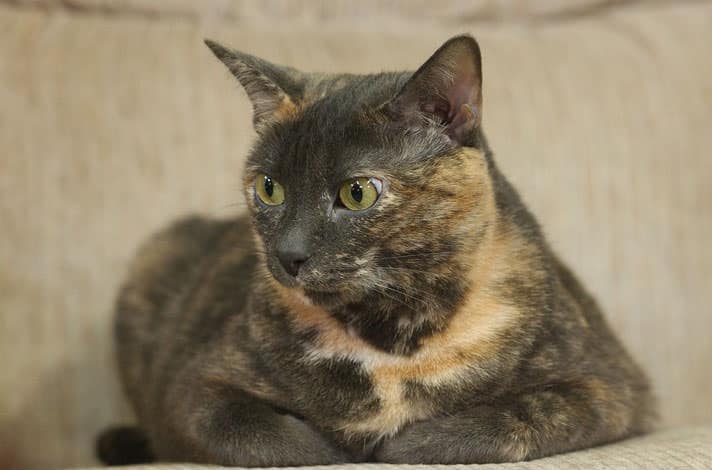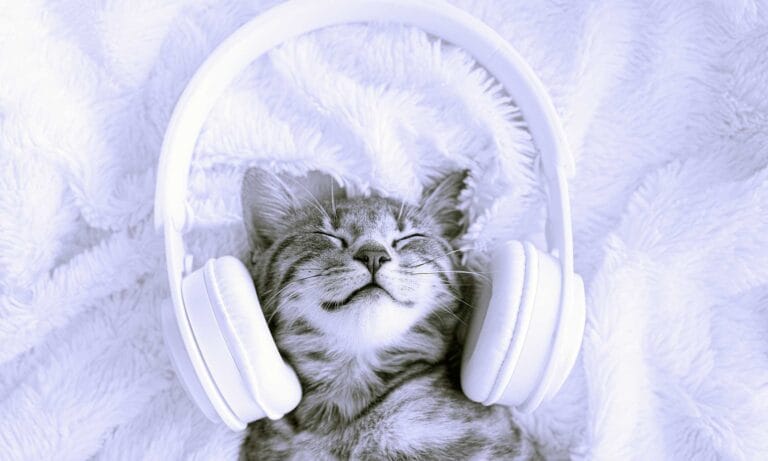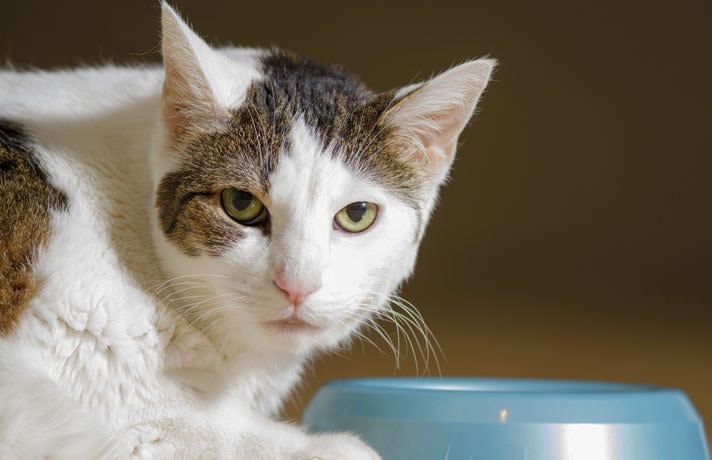Q.
My 13-year-old cat seems healthy, she eats, drinks and plays. Despite eating a lot, howeve, she is losing weight. She has gone from a chubby cat to scrawny. Is she sick?
A.
I see this situation frequently. Generally, when cats eat well, it is a sign of good health. An excessive appetite, however, might indicate a problem. In older cats, we’d put diabetes and hyperthyroidism on our list of illnesses that can cause weight loss in the face of a good (or great) appetite.
Diabetes is a condition in which the pancreas is not producing sufficient insulin. Typically, cats with diabetes drink and urinate excessively, eat ravenously and lose weight. Treatment generally involves administration of insulin injections twice daily, and a switch to a high protein/low carbohydrate diet.
Hyperthyroidism is a glandular disorder in which the thyroid gland in the neck produces too much thyroid hormone. Older cats usually exhibit this, the average age being around 13, so your cat is definitely a candidate. Fortunately, this condition is very treatable. In fact, it is curable, so no need to worry. Have your cat’s veterinarian run some basic blood tests — a complete blood count, chemistry panel, thyroid test and urinalysis. This basic “senior profile” should determine if your cat has either of these disorders. If the bloodwork comes back normal, consider a gastrointestinal disorder such as inflammatory bowel disease, pancreatic insufficiency or even gastrointestinal lymphoma (a type of cancer).
Pancreatic insufficiency is a disorder in which the pancreas does not produce enough enzymes necessary to properly digest food. Cats eat, but the undigested nutrients do not get absorbed by the body, and the cat eats excessively because she feels as if she is starving. Affected cats often have diarrhea and weight loss.
This disorder is uncommon, and you didn’t mention diarrhea, so I doubt if this occurs in your cat. Inflammatory bowel disease (IBD) and gastrointestinal lymphoma, however, are much more common. In most cases, cats with these disorders have a decreased appetite, although some cats have a normal or even an increased appetite.
If the bloodwork rules out diabetes, hyperthyroidism or other metabolic disorders that could cause weight loss, further diagnostic tests such as abdominal ultrasound and/or endoscopy may be warranted to achieve a definite diagnosis.
By: Arnold Plotnick, DVM
Featured Image: via Pixabay
Share:









